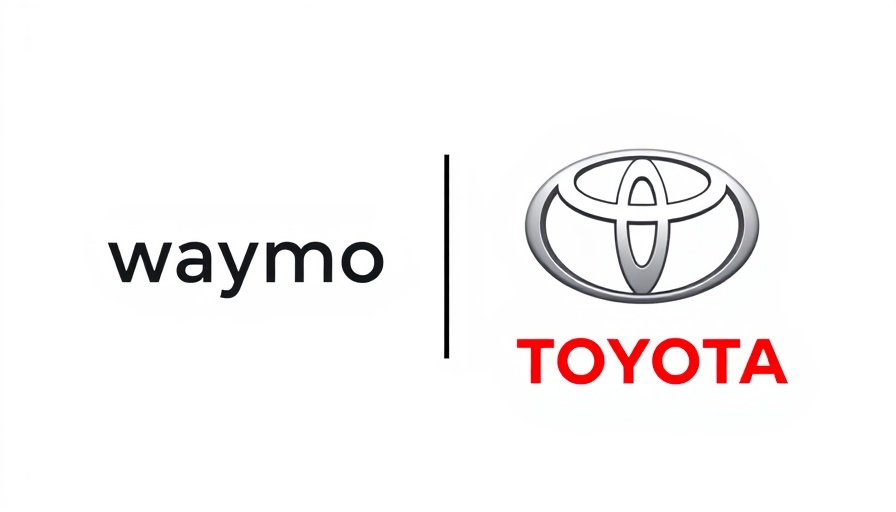
Waymo and Toyota's Vision for Autonomous Vehicles
In a significant move that could reshape the landscape of personal transportation, Waymo and Toyota are joining forces to explore the integration of autonomous driving technology into personal vehicles. This partnership combines Waymo's advanced self-driving tech and Toyota's established automotive expertise, aiming to create a new standard in road safety and driving convenience.
Building a Zero-Accident Future
The essence of this collaboration points toward a collective ambition of a zero-accident future, a mission that both companies champion. As vehicles evolve into smarter machines, the significance of autonomous and advanced safety technologies cannot be overstated. "Our focus is simple: make the roads safer by reducing human error, which is the leading cause of accidents today," said a spokesperson from Toyota. The prospect of self-driving vehicles may soon transition from a science fiction novelty to an everyday reality, significantly improving how we perceive car ownership and road safety.
The Broader Industry Trend: Partnerships for Innovation
Waymo and Toyota's exploratory partnership reflects a broader trend in the automotive industry where traditional automakers are increasingly collaborating with tech startups to innovate. The search for effective partnerships is paramount—recent efforts by GM, Ford, and Hyundai to work with various autonomous vehicle startups have yielded mixed results. While many partnerships have resulted in advancements in driver-assist technology, the leap toward full autonomy has yet to be achieved. This context makes the Waymo-Toyota tie-up particularly intriguing.
What Success in This Partnership Might Look Like
If successful, the Waymo-Toyota partnership could catalyze the introduction of revolutionary self-driving vehicles equipped with a user-friendly interface for personal owners. As Waymo has reached Level 4 autonomy, which allows for operation without human oversight, they are positioned as one of the leaders in the robotaxi space. Toyota, leveraging its broad reach and reputation for reliability, would enhance this technology’s acceptance in everyday life.
Future Insights: Could We Own a Waymo Vehicle?
In a recent quarterly earnings call, Alphabet's CEO Sundar Pichai hinted at the exciting possibility of selling Waymo vehicles to the public. While many are eager to embrace the driverless future, the convergence of autonomy and ownership raises questions about user adaptability and safety. How will consumers react when they transition from driving a car to owning an autonomous vehicle that drives itself? The Waymo and Toyota collaboration might hold the key to answering those questions.
Challenges Ahead: The Road to Acceptance
Despite their innovative aims, Waymo and Toyota face significant challenges ahead. Public perception of safety, regulatory hurdles, and the logistics of vehicle adaptation will require careful management. Moreover, with competitors like Tesla entering the market with fervor, maintaining a competitive edge will be critical. As has been seen with past collaborations that have produced mixed results, constant innovation and consumer engagement are essential for success.
Conclusion: What Should Business Owners Keep an Eye On?
For business owners generating $2M–$10M+ in revenue and planning on scaling operations, this development is worth closely monitoring. The integration of autonomous technologies not only drums up new business opportunities within the automotive industry but also suggests potential shifts in operational infrastructure. Staying ahead of these trends can unlock new paths for engagement with customers and improve overall operational efficiencies.
As we watch this space evolve, consider how your business might adapt to or leverage these advancements in technology and the ongoing shifts in consumer behaviors and expectations. Embracing innovation could fundamentally alter the trajectory of your operations and market engagement.
 Add Row
Add Row  Add
Add 



Write A Comment